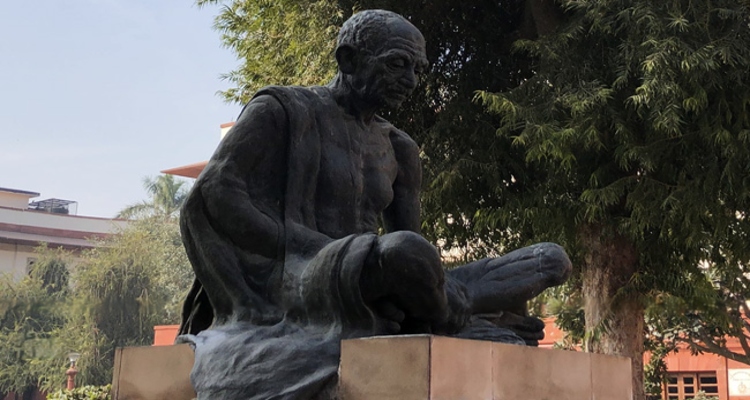
The Supreme Court on Tuesday rejected the plea filed by Tushar Gandhi, the great-grandson of Mahatma Gandhi, challenging the Sabarmati Ashram redevelopment project. The bench, comprising Justices M M Sundresh and Rajesh Bindal, declined to intervene, citing a delay of over two years in filing the petition.
Concerns Over Ashram’s Alteration
Tushar Gandhi had approached the court against the Gujarat High Court’s order that dismissed his petition in 2022. His plea raised concerns that the redevelopment project would alter the topography of the historic ashram, which holds immense significance in India’s freedom struggle.
According to Gandhi, while over 40 structures would be preserved, nearly 200 buildings would either be demolished or reconstructed, potentially compromising the site’s historical integrity.
Court’s Observations
The Supreme Court noted that the Gujarat government had assured the court that the core five-acre premises of the ashram would remain untouched. The bench remarked that mere apprehension regarding changes could not be a valid ground for judicial intervention.
Furthermore, Advocate General Kamal Trivedi, representing the Gujarat government, reiterated that the redevelopment plan aimed to enhance the site without affecting its historic essence.
Court’s Previous Verdict
In 2022, the Gujarat High Court had also dismissed Tushar Gandhi’s plea, emphasizing the government’s commitment to preserving the sanctity of the Ashram. The court had acknowledged the redevelopment’s potential to transform the Ashram into a world-class memorial while retaining its historical significance.
Tushar Gandhi’s Demand
Gandhi had urged that the redevelopment be supervised by the National Gandhi Smarak Nidhi (NGSN) to ensure that it aligned with Mahatma Gandhi’s original vision. However, the Supreme Court’s rejection means that the project will proceed as planned under the Gujarat government’s oversight.
Historical Significance
Established in 1917 by Mahatma Gandhi in Ahmedabad, the Sabarmati Ashram was the epicenter of India’s freedom movement. It served as Gandhi’s residence and headquarters during the Civil Disobedience Movement and the Quit India Movement.
The redevelopment project aims to transform the Ashram into a modern, world-class memorial while ensuring that its rich historical legacy remains intact.
Read More: Supreme Court, Delhi High Court, States High Court, International




